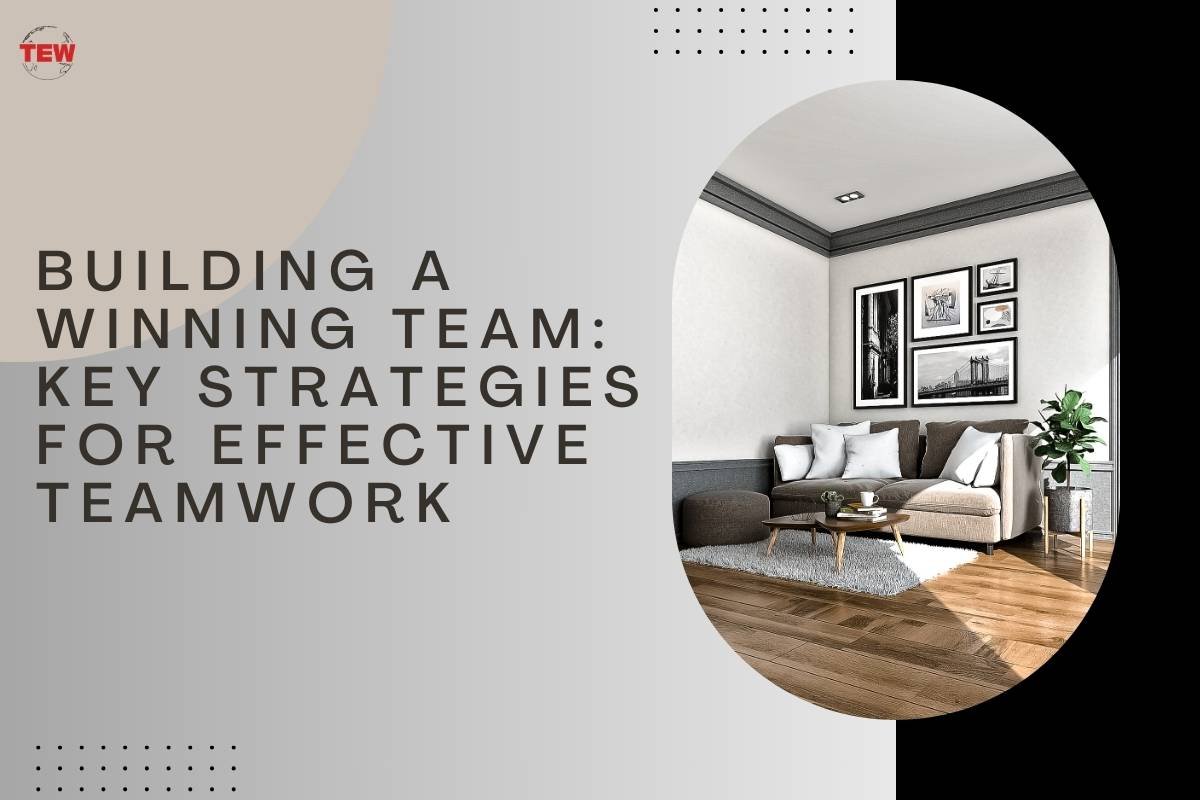Within the dynamic world of business, the foundation of victory lies within the strength of cooperation and Making a Building a Winning Team . A cohesive and efficient team can accomplish exceptional feats, driving innovation, and outperforming organizational goals. However, building such a winning team requires more than just assembling individuals; it requests key planning and execution of key procedures for compelling collaboration. We delve into the essential strategies curated by Adventure Games Inc, a renowned leader in team building solutions, that can transform any individual into a high-performing team. From fostering open communication and trust to promoting collaboration and accountability, join us as we explore the fundamental elements that contribute to building a winning team.
Strategies for Building a Winning Team:
1. Establish Clear Goals and Roles
To accomplish successful cooperation and Building a Winning Team , it is basic to set up objectives and characterize individual parts of the team. Clear objectives give a sense of heading and reason for the team, guaranteeing that everybody is working towards a common objective. By clearly communicating these objectives to members, everybody can balance their endeavors and get how their individual commitments contribute to the, by and large, victory of the group.
Furthermore, characterizing roles inside the team makes a difference in clarifying obligations and cultivating responsibility. Each team member should have a well-defined role that leverages their qualities and skills, empowering them to center on their particular errands and obligations. This clarity not only upgrades collaboration and efficiency but also minimizes perplexity and duplication of efforts.

2. Encourage Open Communication and Trust
A vital aspect of building a winning group is to encourage open communication and cultivate a culture of trust among employees. Open communication permits for the free trade of thoughts, criticism, and concerns, guaranteeing that everyone’s voices are listened to and esteemed. This advances collaboration and advancement, as group individuals can share their special points of view and experiences.
In addition, creating an environment of trust is basic for successful cooperation. When group individuals trust one another, they feel secure to face dangers, share their conclusions, and concede their mistakes without fear of judgment or reprisal.
Trust also empowers individuals to rely on one another, designate errands, and work together towards common objectives. By empowering open communication and cultivating trust inside the group, organizations can open the total potential of their employees and accomplish more prominent success.
3. Foster a Positive Team Culture
To foster a positive culture, it is vital to sustain an atmosphere for making Building a Winning Team and of regard and back among individuals. This may be accomplished by recognizing and increasing the value of individual commitments, celebrating group triumphs, and giving valuable criticism in a useful and aware way. Empowering a sense of camaraderie and solidarity inside the group makes a difference in cultivating a positive culture, where individuals feel esteemed, propelled, and enabled to perform at their best.
Moreover, making openings for group building exercises and advancing work-life balance can upgrade group resolve and by and large fulfillment. By cultivating a positive culture, organizations can make a cohesive and persuaded group that’s driven towards accomplishing shared objectives and conveying extraordinary results.
4. Utilize Each Team Member’s Strengths
In order to maximize the adequacy and efficiency of a group, it is pivotal to recognize and utilize each group member’s special qualities and capacities help to make
In order to maximize the adequacy and efficiency of a group, it is pivotal to recognize and utilize each group member’s special qualities and capacities help to make a Building a Winning Team: Key Strategies for Effective Teamwork . When individuals are allotted assignments that balance with their individual qualities, they are more likely to exceed expectations and contribute significantly to the team’s overall victory. By capitalizing on these qualities, not only does it increases the effectiveness of completing errands, but it also cultivates a sense of fulfillment and work fulfillment among team members.
. When individuals are allotted assignments that balance with their individual qualities, they are more likely to exceed expectations and contribute significantly to the team’s overall victory. By capitalizing on these qualities, not only does it increases the effectiveness of completing errands, but it also cultivates a sense of fulfillment and work fulfillment among team members.
Successful leaders understand the significance of recognizing and leveraging the assorted skill sets inside the group, making a well-rounded and collaborative environment where everyone’s commitments are esteemed. This approach not only advances individual development and advancement but also leads to a more cohesive and effective group dynamic.
5. Embrace Diversity and Inclusivity
A principal perspective of building a winning team is grasping differences and inclusivity. By esteeming and regarding the interesting foundations, viewpoints, and encounters of each group part, organizations can create a more energetic and inventive work environment.

Grasping differences guarantees that a wide extent of thoughts and plans are considered, driving to more comprehensive problem-solving and decision-making forms. It also cultivates a sense of having a place and mental security, empowering people to bring their true selves to the table and completely contribute to the team’s objectives.
Besides, different groups have been shown to beat homogeneous groups, as they benefit from a broader range of abilities, knowledge, and inventiveness. By effectively advancing differing qualities and inclusivity, organizations can make a culture where all group individuals feel esteemed, regarded, and enabled to reach their full potential, eventually driving group success.
6. Set and Enforce Team Standards
To cultivate successful cooperation, it is fundamental for groups to establish and implement team standards. Team standards are a set of agreed-upon behaviors, values, and desires that direct how group members are associated and work together.
By setting and enforcing group standards, groups can set up a shared understanding of how they will communicate, make choices, and resolve conflicts. This promotes cohesion, collaboration, and responsibility inside the group.
Viable group norms can incorporate rules for dynamic interest in gatherings, conscious communication, provoked reaction to emails, and adherence to due dates. By setting up and reliably upholding these norms, teams can make a positive and profitable work environment that bolsters their collective success.
7. Routinely Assess Group Progress
To guarantee continuous improvement and victory, it is vital for groups to routinely assess their advance. By routinely surveying group execution and following key measurements, groups can distinguish regions of quality and zones that require enhancement. This evaluation process permits individuals to reflect on their individual and collective commitments, evaluate their viability in assembly objectives and goals, and distinguish any deterrents or challenges that will hinder their progress.
Regular assessment also gives an opportunity for employees to supply input, share experiences, and brainstorm methodologies for change. By reliably investigating and evaluating group advances, groups can distinguish and address any issues or crevices in their execution, permitting them to create vital alterations and persistently upgrade their adequacy and productivity.
8. Celebrate Victories and Learn From Failures

Recognizing and acknowledging accomplishments, both big and small, boosts team resolve and cultivates a positive work environment. Whether it’s assembly venture deadlines, exceeding targets, or accomplishing critical points of reference, taking the time to celebrate these triumphs strengthens a sense of accomplishment and spurs team members to proceed with their difficult work.
Similarly imperative is learning from disappointments. Rather than staying on botches or misfortunes, grasping them as opportunities for development and enhancement can be transformative for a team. By analyzing the reasons behind disappointments, distinguishing zones for advancement, and actualizing procedures to anticipate comparable issues in the future, teams can illustrate versatility and a commitment to non stop learning.
Conclusion
Building a winning team takes exertion, commitment, and successful procedures. By executing communication, trust, differences, and clear parts and obligations, groups can overcome challenges and achieve success. It is important to continually work on building and maintaining a strong team dynamic while also recognizing and addressing any issues that may arise. With these key strategies in place, teams can reach their goals and accomplish great things together. Remember, teamwork truly does make the dream work.




